How Coraline Jones And Jack Skellington Are Similar
You may have heard this already, but the Tim Burton film The Nightmare Before Christmas displays cultural appropriation and capitalist exploitation.
This is bad, but this happens from Jack's existential crisis that comes from his inability to appreciate his life after living the same way for so many years. And in a way, he’s not so different from Coraline.
You might think I’m crazy, but hear me out.
The Doors Appear When They’re Bored.
When Coraline is bored, she explores. She meets her neighbors out of boredom instead of curiosity and interest in who they are and their lives. In the book, she does this a lot since Wybie doesn’t exist, though even when the movie occupies her time with Wybie, she tolerates him out of boredom in the beginning until the trouble is stirred up with the beldam.
When the door was first encountered, it was blocked up with bricks. However, when it became evident that Coraline was bored, the door was found slightly open leading to the other world.
It just took Coraline’s curiosity to walk through it. In fact, this was regularly done to bored children since the three ghosts say that the beldam “spied on our lives through the little doll's eyes. And saw that we weren't happy. So she lured us away with treasures. And treats.”
In The Nightmare Before Christmas, we’re introduced to the scary festivities of Halloweentown through the song “This Is Halloween.” It’s an amazing number that I love listening to during Halloween and Christmas time, but Jack Skellington is unhappy with it all.
He displays his superiority as the pumpkin king at the end of the song, but quickly shows the audience that he’s unhappy with his song “Jack Lament.”
He sings, “Year after year, it’s the same routine...and I Jack, the Pumpkin King, have grown so tired of the same old thing...somewhere deep inside of these bones, an emptiness began to grow.”
After singing this, he walks into the forest where fog appears. Not knowing what direction to take, he waits for it to clear, but he falls asleep and wakes up surrounded by trees with doors in the shape of holiday symbols, leading to different worlds.
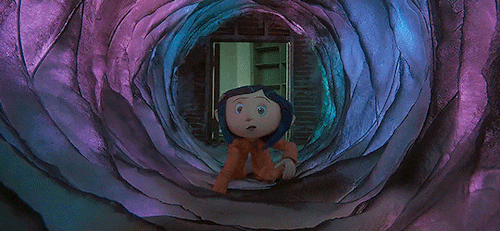
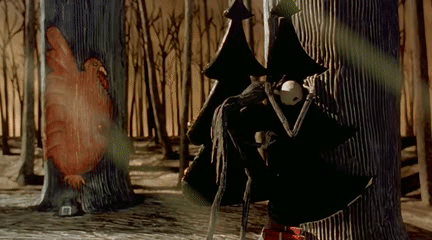
They’re Bored Because Of Their Inability To Appreciate Their Lives.
While it’s obvious that these two characters are bored, it was weird at first for me to see and read an 11-year-old being bored since I consider 11-year-old children. However, between 11 to 13, 14, or 15, the age gap isn’t far, making her experience something in the middle. In other words, she is between being a child and a teenager and is therefore in a transitional stage.
Children are often amazed by the world and ask so many questions about it, while teenagers are excited to explore the world with friends wishing to be adults to do whatever they want when they want.
However, in between the child and the teenager, they experience a period of boredom if the parents don’t make a lot of income. So in this age range, their boredom can lead to complaints of have nots without taking into consideration their parents' struggles, which can linger into teenage years.
Coraline’s parents are emotionally distant due to their jobs, however, this isn’t Coraline’s concern. Instead, she’s concerned about her have nots. From her parents, her dad cooks, but she hates his cooking. In fact, when her dad is serving her food as he sings, she makes a face of disgust and calls it slime and poison.
In the book, the scarcity of food is emphasized with Coraline noting only spoiled milk being in the fridge. Though, I think the movie shows her poverty more since the audience gets to see that her house is basically empty.
The kitchen has nothing but a round table with metal folding chairs with one dim light. Her room is the same with only having a bed, a nightstand, and clothing drawers. With that said, it’s visually seen that her parents don’t make a lot of income.
Because of this, she doesn’t have much, making her bored and unappreciated. The movie emphasizes this with the beldam luring Coraline to the other world by exaggerating everything she ever wanted by providing good food, toys, and a lively house with colors, music, decorations, a big garden, and more.
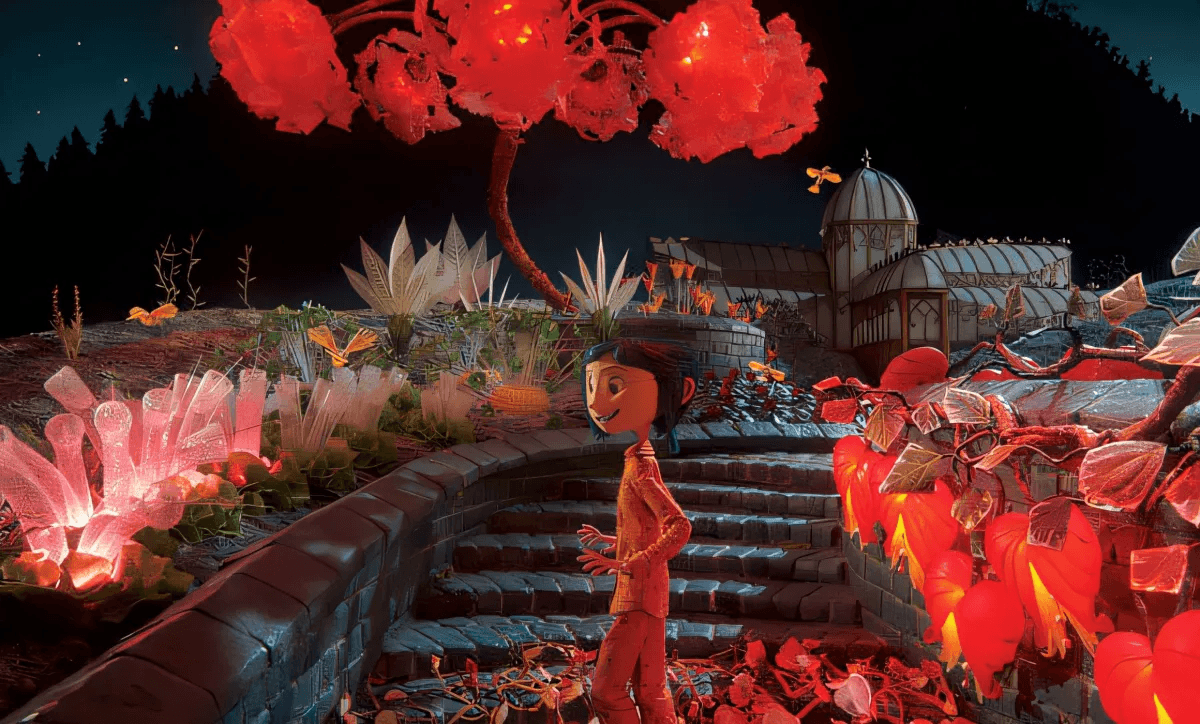
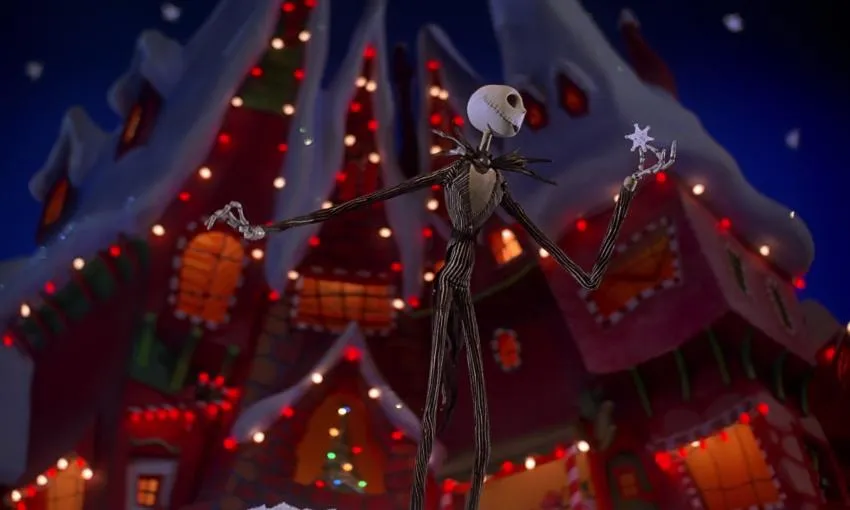
In The Nightmare Before Christmas, Jack Skellington experiences an existential crisis from doing the same thing over again for years. Compared to Coraline, he has more life experience, but he gets bored since his life feels mundane to him. However, compared to the citizens who praise him, they love their lives and Jack’s festivities of Halloween. In other words, they never get bored.
While this can go into class and privilege issues, the difference of enjoyment between him and everyone else shows that he doesn’t appreciate his life. As pumpkin king, he has an effect on the people around him since he influences the citizens’ enjoyment and sentimentality of Halloween.
Instead of appreciating that and propelling his ambitions in a creative direction, he’s unsatisfied with his work and ends up appropriating another culture's religious holiday- Christmas.
Sadly, this happens because of the newness of Christmas to Jack since he spends so much time trying to understand what Christmas is and tries replicating it to take over it. In the process, he gives a speech on what Christmas is to citizens and what he needs of them to replicate it.
In my opinion, he understands Christmas at a commercial level, which is essentially how industries display Christmas as a lot of decorations and gift-giving. This then shows how he probably views and organizes Halloween with a commercialized lens too, revealing how he never sees the deeper meaning behind the holiday or his work.
To add on, even though he described Christmas through a commercialized lens to his citizens, they end up incorporating their spooky Halloween elements to Christmas, leaving Jack upset that they didn’t understand what he meant. This shows how the citizens love and enjoy Halloween.
In fact, they believed the purpose of the gifts was to scare the receiver in some way. This is because all they know is their Halloween culture traditions and values, but their enthusiasm of incorporating them in something different thinking with the same intention to scare people, they get happy since they love their way of life, revealing that Jack Skellington is the only one bored and unhappy.
They Feel Entitled To Their Greediness But Learn To Appreciate Their Lives.
In Coraline, Coraline doesn’t display entitlement directly. Instead, she expresses her entitlement subtly with her enjoyment of finding the other mother, since she would have happily stayed with her if the beldam never said she needed to get button eyes. Yet I think I might be reaching with this one.
Either way, when Caroline finally escapes the beldam, she has a new perspective on her life and begins to love and appreciate it. In the movie, this is shown with her saying she misses her parents and happily enjoys the conversation of their duties.
Though, the book shows her appreciation more clearly. After she escapes the beldam, Coraline pays special attention to nature, “Coraline stared at the leaves on the tree, at the patterns of light and shadow on the cracked bark of the trunk of the beech tree outside the window.
Then she looked down at her lap, at the way the rich sunlight brushed every hair on the cat’s head, turning each white whisker to gold. Nothing, she thought, had ever been so interesting.”
From here, she goes up to her father and kisses him on his cheek saying she misses him. She even eats his food without disgust or hesitation and visits her neighbors to engage in conversations with interest.
These instances reveal that not only does she appreciate her parents now, but she also appreciates her life.
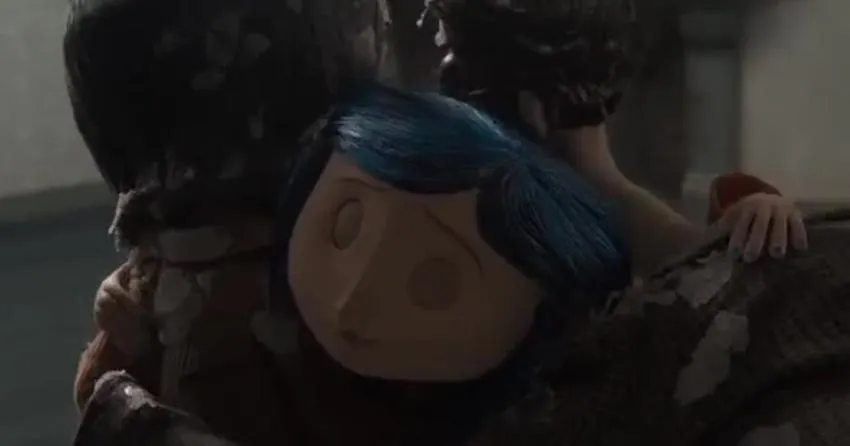
With Jack, he had to ruin Christmas to understand he was appropriating another culture since he got undesirable reactions from the people of Christmastown with families running in horror causing Jack to be chased down by military forces.
He tries to make up for the damage by saving Santa from Oogie Boogie and apologizes to Santa. Santa is mad at him for some time, but once he forgives him, he makes it snow in Halloweentown.
But aside from this, he learns to appreciate his own culture and role after seeing citizens’ reactions to his arrival, thinking he died in his travels. During his missing time, the town was deserted and gloomy, but once he arrived everyone went to greet him lively, making him see the effect he has on people and their lives. This is especially true with him receiving Sally’s kindness and care since his new life includes her.
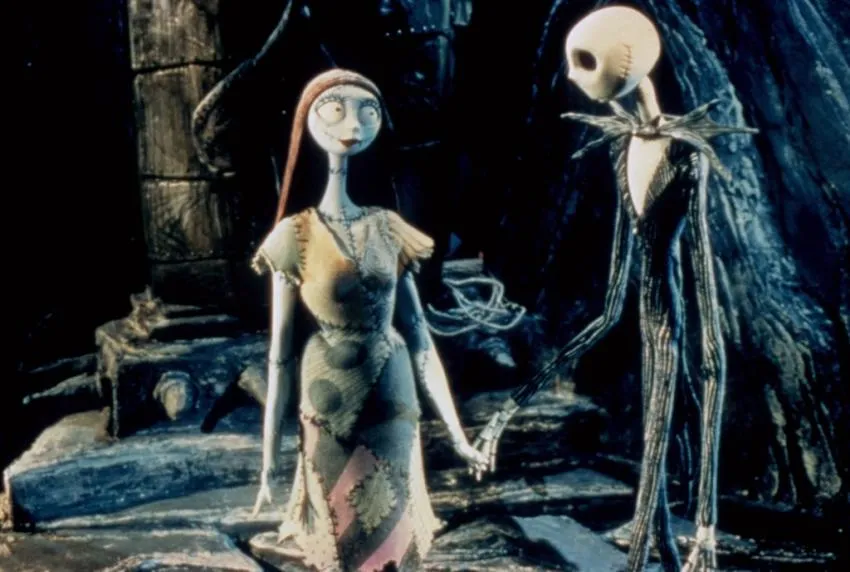
With that said, one of the many themes of both of these stories is not to take our lives for granted. Though, in comparison, they show that this lesson can and should be learned at any age. Yet because Jack is older, it seems like there will be periods of times where we will throughout our life, making lessons of appreciation something we need to be taught regularly or else we could and might forget.
Opinions and Perspectives
Both characters really capture that universal feeling of wanting to escape our normal lives.
Both stories really nail that feeling of being stuck between wanting more and having enough.
I love how both stories show personal growth through mistakes rather than perfect decisions.
The comparison between Jack's privileges and Coraline's limitations adds another layer to both stories.
Both stories really capture that feeling of wanting something more while having something good.
Interesting analysis of how both stories handle the theme of appreciation differently based on age.
The way both characters learn to see their original worlds with new eyes is really powerful.
I appreciate how both stories avoid simple moralistic endings while still teaching valuable lessons.
These stories really show how boredom can lead us to make dangerous choices.
The contrast between initial dissatisfaction and final appreciation is so well handled in both stories.
Both protagonists learn similar lessons but in ways appropriate to their ages and situations.
Interesting how both characters need to experience something worse to appreciate their normal lives.
The way both stories handle personal growth through adversity is really well done.
I think the article misses how both characters maintain their curiosity while learning to appreciate what they have.
Both stories really emphasize how dangerous it is to chase idealized versions of life.
The parallel between Jack's existential crisis and Coraline's childhood dissatisfaction is fascinating.
Never considered how both characters start by rejecting their communities and end by embracing them.
Their journeys of self-discovery feel incredibly authentic despite the fantastic elements.
I love how both stories show that running away from problems only creates bigger ones.
The timing of finding these magical doors seems too convenient to be coincidental in both stories.
I think we're overlooking how both characters actually bring positive changes back to their original worlds.
Both stories really capture that feeling of wanting to escape our normal lives.
Reading this made me appreciate how complex these supposedly simple children's stories really are.
I see these as stories about the importance of community and belonging more than anything else.
The visual contrast between the real and alternate worlds in both stories is so striking.
Interesting how both stories use food as a symbol of contentment versus dissatisfaction.
The way both characters initially reject their normal lives feels so human and relatable.
I actually think Jack's story is more about cultural appreciation versus appropriation than simple boredom.
These stories really nail how dangerous it is to romanticize what we don't have.
Never thought about how Jack's privileged position as Pumpkin King mirrors Coraline's middle-class ennui.
I particularly appreciate how both stories avoid simple good vs evil narratives. Even the Other Mother was once something else.
The transformation of both characters feels authentic because they learn through experience rather than lecture.
While I see the parallels, I think comparing child neglect to professional burnout is a bit of a stretch.
I wonder if age really matters as much as the article suggests. Don't we all go through cycles of appreciation and dissatisfaction?
The way both protagonists affect their communities is notable. Jack's absence creates gloom while Coraline's story saves future children.
I think the article undersells how manipulative the Other Mother was compared to Christmas Town.
You've made me realize how much these stories speak to the danger of running from our problems instead of addressing them.
The timing of their discoveries is interesting too. Both find their doors during moments of peak dissatisfaction.
Coraline's transformation from being disgusted by her father's cooking to appreciating it really hits home.
The article makes a great point about having to relearn appreciation throughout life. It's not a one-and-done lesson.
I found it interesting how Jack's citizens misunderstand Christmas in exactly the same way he misunderstood it.
The parallel between the Other Mother's world and Christmas Town is spot on. Both are idealized versions that hide something sinister.
It's fascinating how both stories use their fantasy elements to explore very real human emotions and experiences.
The difference in how they learn their lessons is interesting. Coraline has to actively fight while Jack mostly just realizes his mistake.
Am I the only one who thinks Jack got off too easy? Santa forgave him pretty quickly considering he nearly ruined Christmas.
I love how both stories show that the grass isn't always greener on the other side. Sometimes it's downright dangerous.
The class issues in Coraline are so relevant today. Many kids still feel that material lack and vulnerability.
I actually saw Jack's story as more about depression than boredom. That emptiness he describes feels deeper than simple tedium.
The way both protagonists learn their lessons feels earned. They have to work through consequences rather than just being told they're wrong.
My interpretation was always that the Other Mother chose Coraline precisely because she was in that vulnerable transition phase.
Looking back, I can see how the Halloweentown citizens' enthusiasm for their work contrasts perfectly with Jack's ennui.
You raise a good point about the commercialization of holidays. Jack completely missed the spiritual aspects of Christmas.
But surely there's nothing wrong with wanting more? Jack's dissatisfaction led to personal growth in the end.
Both stories really shine a light on the dangers of wanting more without appreciating what we have.
I never realized how empty Coraline's house was until reading this. The visual storytelling in that movie is incredibly subtle.
Anyone else notice how both worlds initially seem better but turn out to be dangerous? Classic be careful what you wish for scenario.
The transition period between childhood and teenage years that Coraline represents is so well captured in both the book and film.
I strongly disagree with comparing these characters. Jack was a leader shirking his responsibilities while Coraline was a child being targeted by a predator.
Interesting how both stories use doors as literal portals to teach life lessons. Makes me think about what doors I might be tempted to walk through when I'm dissatisfied.
The economic aspect of Coraline's story really resonates with me. Growing up in a similar situation, I understand how material scarcity can make you vulnerable to manipulation.
True, but good intentions don't excuse his actions. He literally stole Christmas and put children in danger with those horrifying gifts!
Let's not forget that Jack's intentions weren't malicious though. He was genuinely fascinated by Christmas and wanted to understand it.
What struck me most was how both characters needed to experience something worse to appreciate what they had. It's a powerful message about gratitude.
I actually disagree about Coraline being entitled. Her parents were genuinely neglectful, spending more time on their computers than with their daughter. Anyone would feel lonely in that situation.
The part about cultural appropriation in Nightmare Before Christmas really opened my eyes. I always enjoyed it as a fun holiday mashup, but now I see the deeper implications.
I never thought about the parallel between Coraline and Jack's boredom leading them to magical doors! Such a fascinating observation.
